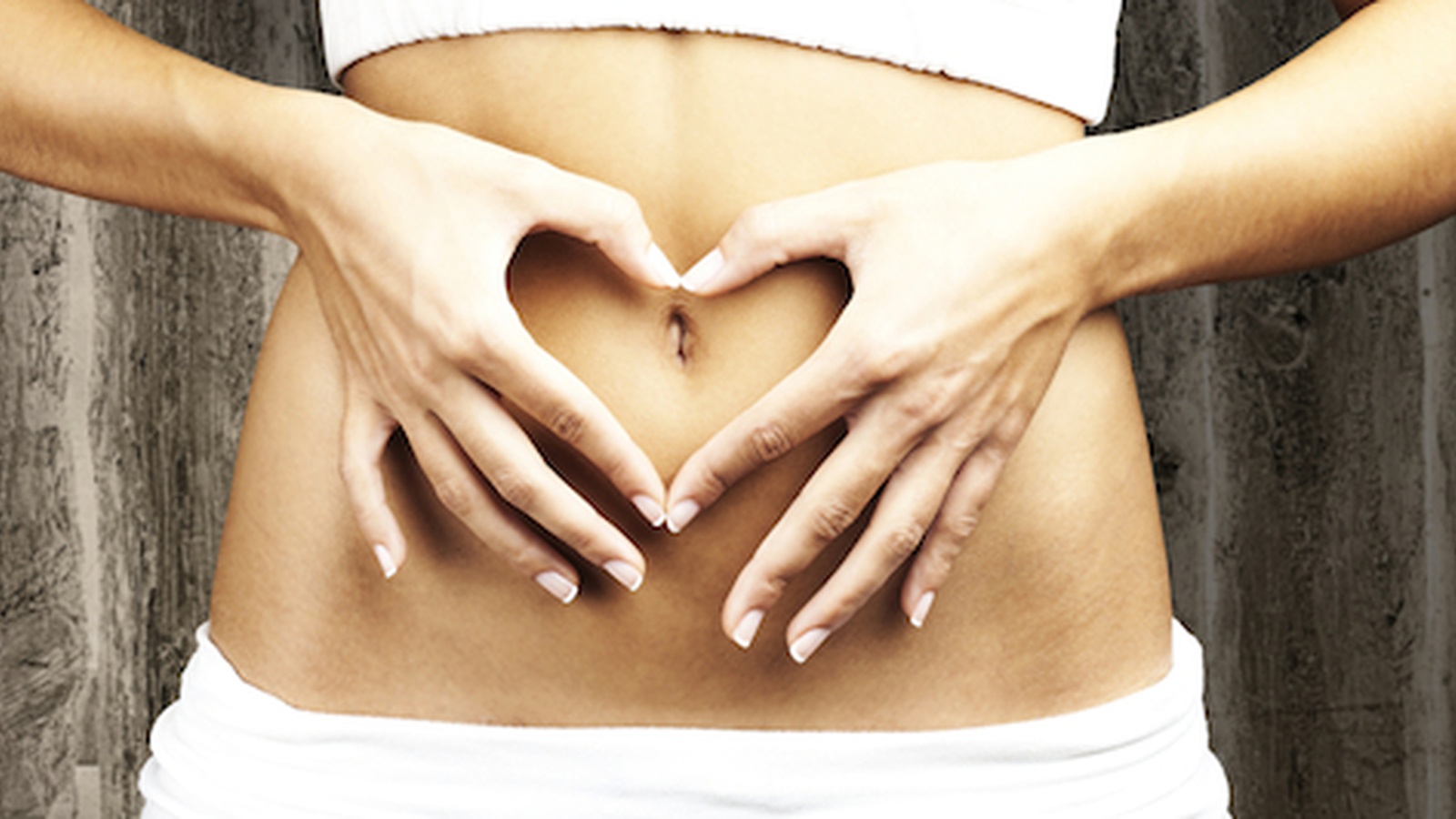A Journey Through Your Intestines
To have healthy bowel movements, it's essential that you support colon and rectal health with all of your daily choices. Keeping these areas clean and healthy provides a lowered risk of cancer, irritable bowel syndrome, hemorrhoids, less gas and a more efficient absorption of water and minerals. You will also experience ad feeling of lightness, comfort and well-being in your abdominal region.
Before we discuss specific choices that you can make to keep your colorectal region healthy and to have comfortable bowel movements, let's review some basic anatomy and physiology of this area.
Your colon and rectum are collectively referred to as your large intestine, which is the last part of your digestive tract.
A Journey Through Your Large Intestine
After food passes through your stomach and small intestine, the remaining material, mostly waste products in liquid form, move on to the your colon, which is the first part of your large intestine.
Your colon is approximately six feet long and serves primarily to dehydrate liquid waste material.
Your colon begins at the lower right hand corner of your abdomen, where it's called your cecum. Attached to your cecum is a twisted, worm-shaped tube called your appendix.
From your cecum, your colon travels up the right side of your abdomen, where it's called your ascending colon. When it reaches your lower right ribs (just below your liver), it turns to travel across your abdomen to just below your lower left ribs; here, it's called your transverse colon.
Just below your lower left ribs, it makes another turn and travels down the left side of your abdomen - this portion is called your descending colon.
Your colon then makes one last turn toward the middle of your lower abdomen, forming an "S" shaped segment that's called your sigmoid colon.
Your sigmoid colon empties waste materials into your rectum, which is like a storage pouch that retains your feces until contractions in your large intestine stimulate a bowel movement.
To understand how to keep your colorectal region clean and healthy, let's go over a few key details on how your large intestine works.
Movement of Waste Material
After you eat a substantial meal, your stomach expands enough to trigger a reflex that causes a contractile wave (called a peristaltic wave) to travel through your small intestine and push any liquid waste material (chyme) that is sitting in the last part of your small intestine into your large intestine.
Once enough liquid waste material accumulates in your cecum (the first part of your large intestine), the waste material begins to move up your ascending colon.
Movement of waste material through your colon is facilitated by something called "haustral churning." Your colon is divided along its length into small pouches called haustra. When a haustrum is filled with substantial waste material, its muscular walls contract and push the waste material into the next haustrum. The contractile reflex that allows haustral churning is regulated by your enteric nervous system, which is a division of your autonomic nervous system.
Your autonomic nervous system is regulated involuntarily (without regular conscious input on your part), and is intertwined with your emotional health. This is why bowel movements and colon health are intricately tied to emotional states like feeling calm or anxious.
On average, your colon experiences anywhere from three to twelve moderate waves of contractions every minute. After every substantial meal, your colon experiences a much larger contractile wave, called "mass peristalsis." Mass peristalsis serves to push waste materials from your transverse colon all the way to your rectum. In most people, mass peristalsis occurs about three times a day.
Water and Nutrient Absorption
The mucosal lining of your large intestine is lined with tiny pits that open into long, tube-like intestinal glands; these glands are lined with specialized cells that absorb water, and other specialized cells (goblet cells) that release mucous into your large intestine to lubricate your stools and to protect the lining of your large intestine against acidic substances and potentially harmful gases.
The specialized cells that absorb water from your waste materials are responsible for about 10 percent of the water that you absorb from the foods and beverages that you ingest; the remaining 90 percent is absorbed by cells that line your small intestine.
This 10 percent of water absorption in your large intestine amounts to anywhere between a pint and a quart of water, and represents a significant portion of your body's daily intake of water. As water is absorbed from the waste material in your colon, so are some nutrients, mainly minerals like sodium and chloride.
It takes anywhere between three to ten hours for your large intestine to absorb enough water from waste material to turn it into solid or partially solid stools. Your stools consist mainly of water, mucous, fiber, old cells from your intestinal lining, millions of microorganisms, and small amounts of inorganic salts.
When your rectal pouch is distended with enough feces to trigger a contractile reflex, your feces are pushed out through your anus. When you consciously contract your abdominal wall, your diaphragm moves downward and helps open up muscles that line your anal sphincter.
Your rectum is lined with three horizontal folds, called your rectal valves; these valves are what prevent stools from passing through your anal sphincter when you pass gas.
If you choose not to release stools when you experience the urge to do so, your reflex contractions may stop, in which case you likely won't have a significant bowel movement until the next mass peristalsis occurs.
Three main causes of diarrhea are:
- Undesirable microorganisms
- Food intolerances (like lactose intolerance)
- Stress
In the first two cases listed above, it makes sense that your body would want things to move quickly through your system; your body doesn't want to spend time digesting foods that it can't properly extract nutrients from or that are laced with disease-causing microbes.
Stress can cause transit time to shorten by messing with your enteric nervous system; please recall that your enteric nervous system controls the reflex contractions that mark "haustral churning." Your enteric nervous system is a part of your autonomic nervous system, and your autonomic nervous system regulates your physiological responses to emotional and physical stress.
When waste material travels through your colon more slowly than it should, enough water is extracted from your waste material to cause your stools to become uncomfortably hard.
Five main causes of constipation are:
- Eating sporadically, or eating meals that are too small to elicit mass peristalsis.
- Not going when you feel an urge to go.
- Lack of a healthy intestinal lining that is capable of producing enough mucous to properly lubricate your stools (vitamin A deficiency is a potential cause of this situation).
- Insufficient intake of water, water-rich foods, and/or fiber-rich foods.
- Stress.
Steps You Can Take To Have Healthy Bowel Movements
Eat substantial meals; don't nibble on small amounts throughout the day.
Each time you eat a substantial meal, you stimulate stretch receptors in your stomach that are responsible for triggering normal and mass peristaltic waves throughout your small and large intestines. These natural contractile waves promote regular movement of waste material through your colon and rectum.
Also, eating substantial meals allows significant boluses (roundish masses) of waste materials to travel together through your colon, turn into well formed stools, and get eliminated from your body in an efficient manner.
Don't suppress the desire to go.
If you regularly suppress the urge to have a bowel movement, waste materials spend more time than is optimal in your colon, causing excessive dehydration of these materials and formation of hard stools.
Ensure adequate intake of water and/or water-rich foods.
Water helps to move waste materials along, and is absorbed throughout the entire length of your colon. Insufficient water intake can cause stools to form far before waste materials reach your rectal pouch, which can cause constipation.
This doesn't necessarily mean that you need to drink several glasses of water per day. If you eat plenty of water-rich plant foods, then you can rely on your sense of thirst to dictate how much water to drink. For more guidance on this issue, please view:
Eat fiber-rich foods regularly.
Fiber adds bulk to the boluses of waste material that travel through your large intestine, and this bulk is essential to your colon's ability to turn waste materials into well formed stools.
A diet that is rich in vegetables, fruits, legumes, and whole grains ensures high fiber intake.
Ensure optimal vitamin D status.
Optimal vitamin D status significantly lowers your risk of developing all types of cancer, including colorectal cancer.
To learn more about how to make sure your body is getting enough vitamin D, have a look at the following:
Ensure adequate vitamin A status.
As mentioned earlier, glands that line the mucosal lining of your colon are responsible for releasing mucous that is needed to lubricate your feces; vitamin A is needed to maintain the health of these specialized cells that release mucous.
It's best to ensure adequate vitamin A status by eating healthy foods that contain vitamin A.
Ensure adequate intake of healthy fats.
All of your cells, including those of your large intestine and nervous system, require a constant influx of undamaged fatty acids and cholesterol to remain fully functional. If you don't ensure adequate intake of healthy fats, your nervous system and the smooth muscles that surround your digestive passageway - both of which are responsible for creating peristaltic waves throughout your digestive tract - may deteriorate in function.
Also, intake of healthy fats is necessary for optimal absorption of fat-soluble vitamin A, which, as mentioned above, is critical to building and maintaining the mucosal lining of your colon.
Healthy foods that are rich in healthy fats include: avocados, organic eggs, olives, extra-virgin olive oil, coconut oil, coconuts, raw nuts, raw seeds, and cold-water fish.
Build and maintain a population of friendly bacteria in your digestive tract.
Large populations of friendly bacteria can keep your digestive tract clean and healthy by:
• Promoting optimal digestion, thereby preventing build-up of toxic waste materials.
• Taking up space and resources, thereby helping to prevent infection by harmful bacteria, fungi, and parasites.
Work at feeling emotionally balanced.
Stress can interfere with your ability to clean your colon through its effect on your enteric nervous system. I can state with certainty that the majority of people who have come to me over the years with a chronic colon-related health issue have had significant anxiety in their lives.
If you have a challenge with colon and rectal health, I encourage you to take a careful look at ways that you can minimize the amount of stress and anxiety you experience.









